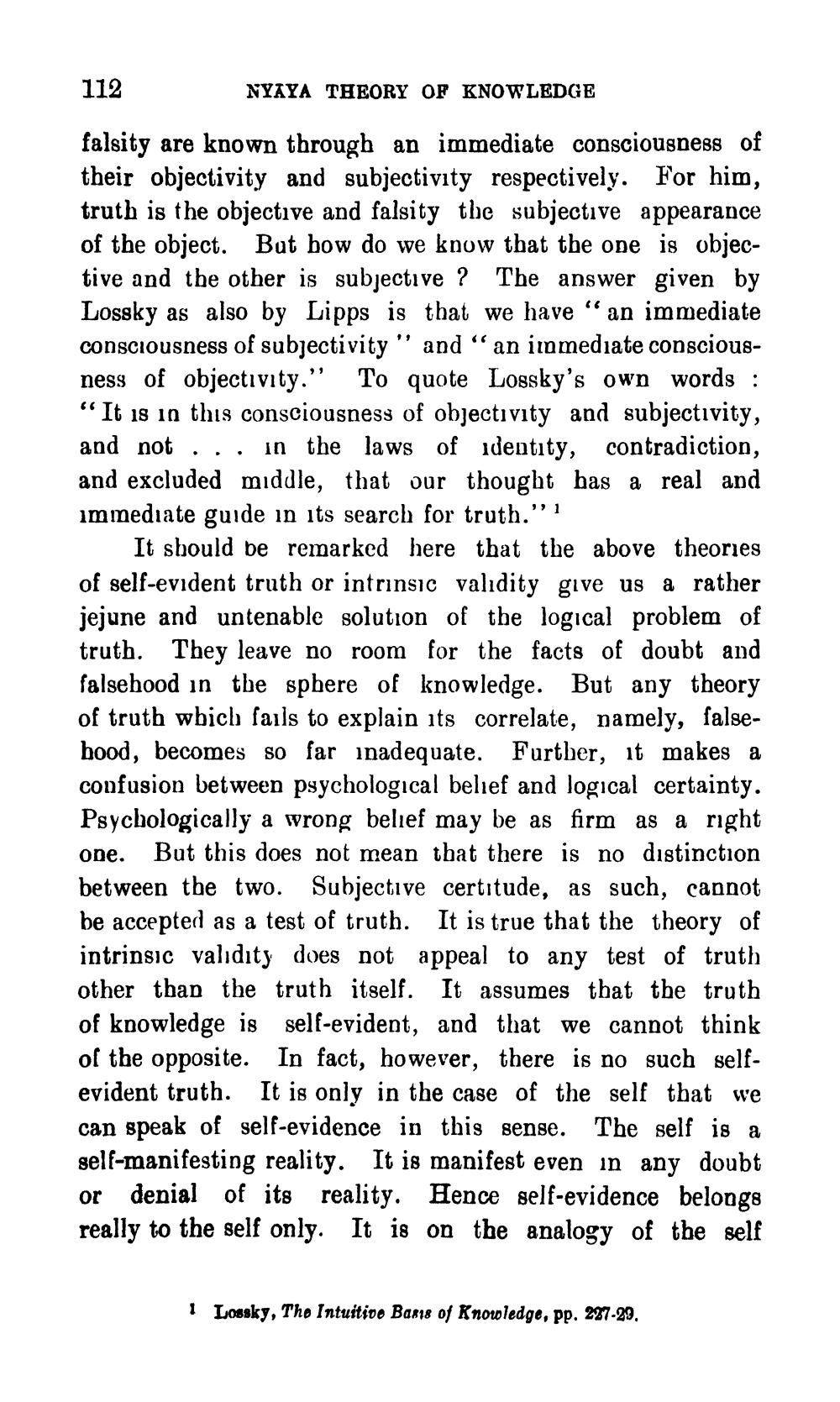________________
112
NYAYA THEORY OF KNOWLEDGE
""
falsity are known through an immediate consciousness of their objectivity and subjectivity respectively. For him, truth is the objective and falsity the subjective appearance of the object. But how do we know that the one is objective and the other is subjective? The answer given by Lossky as also by Lipps is that we have an immediate consciousness of subjectivity" and " an immediate consciousness of objectivity." To quote Lossky's own words : "It is in this consciousness of objectivity and subjectivity, and not . . . in the laws of identity, contradiction, and excluded middle, that our thought has a real and immediate guide in its search for truth."1
It should be remarked here that the above theories of self-evident truth or intrinsic validity give us a rather jejune and untenable solution of the logical problem of truth. They leave no room for the facts of doubt and falsehood in the sphere of knowledge. But any theory of truth which fails to explain its correlate, namely, falsehood, becomes so far inadequate. Further, it makes a confusion between psychological belief and logical certainty. Psychologically a wrong belief may be as firm as a right one. But this does not mean that there is no distinction between the two. Subjective certitude, as such, cannot be accepted as a test of truth. It is true that the theory of intrinsic validity does not appeal to any test of truth other than the truth itself. It assumes that the truth of knowledge is self-evident, and that we cannot think of the opposite. In fact, however, there is no such selfevident truth. It is only in the case of the self that we can speak of self-evidence in this sense. The self is a self-manifesting reality. It is manifest even in any doubt or denial of its reality. Hence self-evidence belongs really to the self only. It is on the analogy of the self
1 Lossky, The Intuitive Basis of Knowledge, pp. 227-29.




